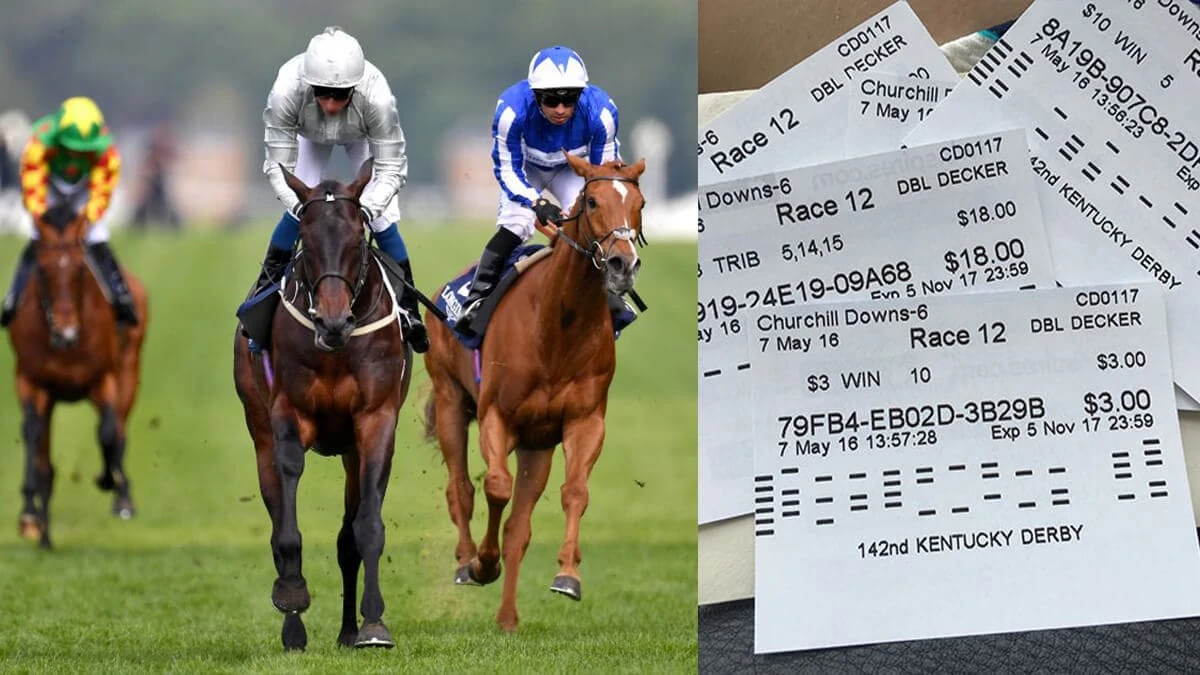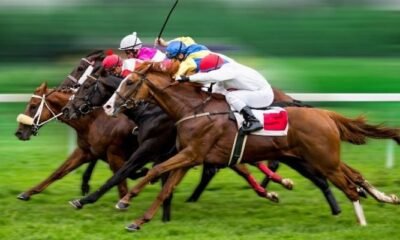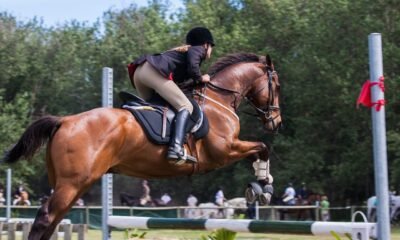
This is the first system that uses Mathematical calculations to predict horse racing winners. The Mathematical Horse Racing Betting System 2022 can also expect race results using complex mathematical equations.
The Mathematical Horse Racing Betting System was developed after extensive Mathematical research and analysis of previous races involving all horses across all tracks in North America. Mathematical models were used to generate Mathematical equations that analyzed all factors affecting each horse; with Mathematical, and statistical analysis, horse past performance data was gathered.
How to build a mathematical horse racing betting system?
To build a mathematical horse race betting system, you need to read the racing form. Having access to computer software will be valuable to make bets when your knowledge is limited. To learn how to wait for better odds and use advanced strategies like dead-heat rules and \”in the money\” wagers (win place show bets), learning the sport of horse racing is necessary. To try your luck at the virtual races with us, you\’ll need to open an account with an offshore bookmaker. To read the racing form correctly, you need to know all about past performance information.
To understand what it means when a race is \”sloppy\” or how to handicap a speed horse, you need to know the basics of handicapping. To learn how to read the racing form correctly so that your betting system has the best chance for success, be sure also to study our section on predicting winners. To understand why many racehorses have similar-looking past performance lines and how their entire history is more important than their most recent race, you need to know what\’s in a past performance.
To learn how to identify important information in the racing form to win at horse betting successfully, you should know all about class horses. To compare your horse\’s class with the competition, you need to know how to calculate Beyer Speed Figures. To understand how horses are classified into specific categories based on their performance at different distances, you should be familiar with organizing races. To learn what it takes for a racehorse to excel in sprints or longer distances, you\’ll need to know how the lengths of each race are determined. To learn what a chart caller is and how he decides on a horse\’s class, you should understand track bias, or when a track favors one type of performance over another.
To calculate past performance lines that show which horses have performed best in their last couple of starts, you\’ll need to know how to read a race chart. To learn how to find the races in which your horses have performed well, you\’ll need to know how to read a past performance line. You should try our Horse Racing Techniques training course on the video to improve your horse racing handicapping skills and make successful wagers. To learn how to identify important information in the racing form to win at horse betting successfully, you should know all about class horses. To compare your horse\’s class with the competition, you need to know how to calculate Beyer Speed Figures. To understand how horses are classified into specific categories based on their performance at different distances, you should be familiar with organizing races.
How do you bet on horse racing numbers?
How bet on horse racing numbers?
Many bettors bet on horse racing numbers in different ways. Some bettors bet by the horses\’ names, others bet based on jockeys or trainers, and some bettors bet based on a combination of factors.
Several proven strategies to follow when betting based on a horse\’s number. It is thought that bettors can bet on horses with specific numbers or bet against certain numbers to achieve the best odds and maximize profits. Some bettors bet based on the time a race will run, while others bet based on everyday horoscopes and planetary movements.
Horse Betting by number
Traditionally bettors bet on horse racing numbers by finding out what number has won the most races in a specific period. The bettor then bets on that number-winning horse for an upcoming race or starts betting against that number if there are multiple runners in a race.
Other bettors bet based on which numbers have a high strike rate. Bettors bet on these numbers for every race until the number loses, resulting in increased payouts as bettors have more chances of winning races with those horses.
Horse Betting against certain numbers
Traditionally bettors bet against specific horse racing numbers by determining what number has lost the most races in a particular period. The bettor then bets on that number-losing horse for an upcoming race or starts betting against that number if there are multiple runners in a race. Bettors bet against those numbers until they lose, resulting in increased payouts as bettors have more chances of winning races with those horses.
Other bettors bet based on which numbers have a low strike rate. bettors bet against these numbers for every race until the number wins, which can result in increased payouts
Other bettors bet based on which numbers have long losing streaks. Bettors bet on these numbers for every race until the number loses, resulting in increased payouts as bettors have more chances of winning races with those horses. Bettors bet against those numbers until they succeed, resulting in increased payouts as bettors have more chances of winning races with those horses.
Other bettors bet based on which numbers have a low strike rate. Bettors bet on these numbers for every race until the number loses, resulting in increased payouts as bettors have more chances of winning races with those horses. Bettors bet against those numbers until they succeed, resulting in increased payouts as bettors have more chances of winning races with those horses.
Bettors bet against those numbers until they win, resulting in increased payouts as bettors have more chances of winning races with those horses.
Important of handicapping in the Mathematical horse racing betting system?
Handicapping is an essential element of horse racing betting and handicappers\’ predictions. Handicappers will use past race results and statistics to determine what types of variables might affect the outcome of a particular race. They\’ll also consider certain factors such as track conditions, weather reports, and jockey integrity.
It\’s certainly not the handicapper\’s job to predict the outcome of a race. That\’s up to the horseplayers, who will use handicapping information to aid in their handicapping.
How does handicapping play into making horse racing predictions?
To put it simply, handicapping takes an educated guess at what horses can run in a particular race, given the conditions and variables outlined above.
Consider handicapping a recipe that, when followed correctly, produces a particular result, namely, future race results, that handicappers can use to their advantage in making horse racing predictions for upcoming races.
The handicapper\’s job doesn’t end once they\’ve made their handicapping predictions. Handicappers must also determine the proper handicapping method. Some handicappers use a more conservative approach, while others might take a more aggressive approach in handicapping races.
Will handicapping make horse racing predictions easier to make?
The simple answer is no. Horse racing handicapping isn’t meant to be used as a crutch or an excuse for wrong handicapping predictions.
Odds might seem higher than usual.
Handicapping is an inexact science, so handicappers will occasionally miss the mark with their handicapping predictions. A handicapper might also fail to consider a specific variable that could potentially affect a race\’s outcome and result in incorrect handicapping predictions.
What about horse racing handicappers?
Handicappers are handicapping experts who follow the sport closely and study past performances, handicapping statistics, and race conditions to make their handicapping predictions.
What is handicapping in horse racing betting? Handicapping in horse racing betting is an inexact science, but it\’s still an effective way for bettors to prepare for upcoming races.
How much is a winning bet on the same horse worth?
A win bet on a horse is a straight betting system where a player bets a specific amount of money to win a particular number of races. In a standard American or British racing event, a bettor must pick a single horse to represent the winning selections for all six races. If a winning wager wins just one race out of six, a bettor receives a slight return of a few dollars. Average win prizes can vary depending on a horse and a racecourse rating, but a $1 win bet is generally worth $2 if a bettor selects a single winning selection out of six races.
A horse is expected to win in a race based on a rating system where a lower number represents a better horse. A bettor who places a $1 win bet on a 1-2 rated horse has a 50 percent chance of winning at least one race out of six races. The same scenario is valid for a 2-3, 3-4, and 4-5-rated horse.
A horse\’s rating does not affect a winning bet if a wager only selects a single winning selection out of six races.
A 1-2 rated horse has a 50 percent chance to win at least one race out of a total of six races. If a player places a $1 win bet on a 1-2 rated horse and a 1-2 rated horse wins a race, a player will receive a $2 return. If a horse finishes runner-up or third place in a race, a player has a 50 percent chance to win nothing and the other 50 percent chance of winning one dollar if their selection finishes just off the first two places.
A 1-3 rated horse has a 33.3 percent chance of winning a race, and a 2-4 rated horse has a 25 percent chance of winning.
A win bet is a wager that will give a player the best return on their money with the highest possible odds of winning a race, but players have a slight chance of suffering a significant loss.
Although a winning bet on a horse to win a single race is a high probability wager, a 1-2 rated horse only has a 50 percent chance of winning a race out of a total of six races. If a player places a $1 win bet on a 1-2 rated horse and the 1-2 rated horse wins a race, a player will receive a $2 return. But a 1-2 rated horse has a 50 percent chance of winning nothing if the 1-2 rated horse finishes second or third out of the six races with a 50 percent chance of winning one dollar if their selection finishes just off the first two places.
The amount that a win bet a horse is worth to a player depends on a horse’s rating and a wager’s financial value.


Must See
-


Racing Events
/ 3 years agoBiggest Horse Racing Events around the World
This article will be discussing 10 of the biggest horse racing events happening throughout...
By Robia Sarah












